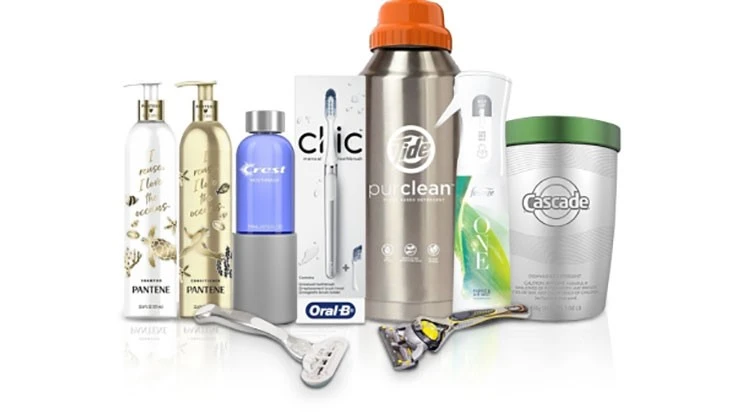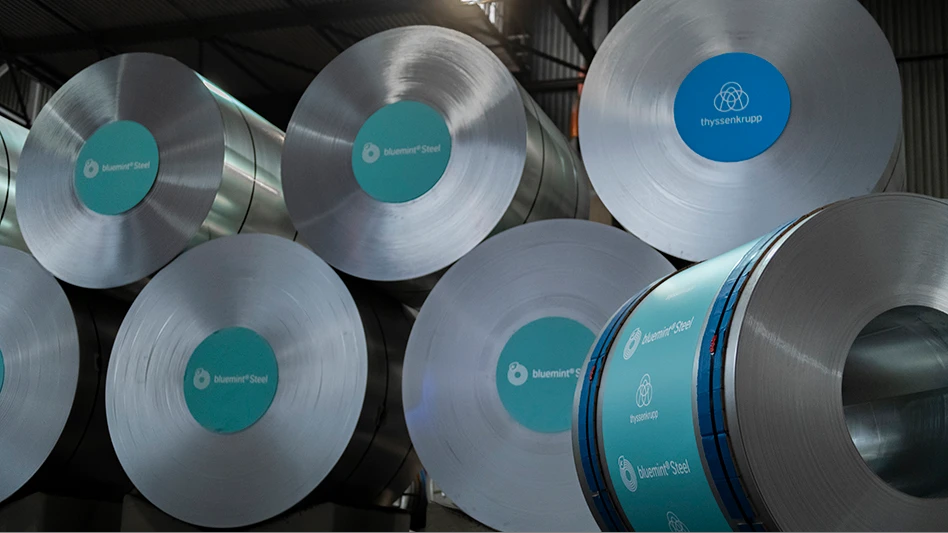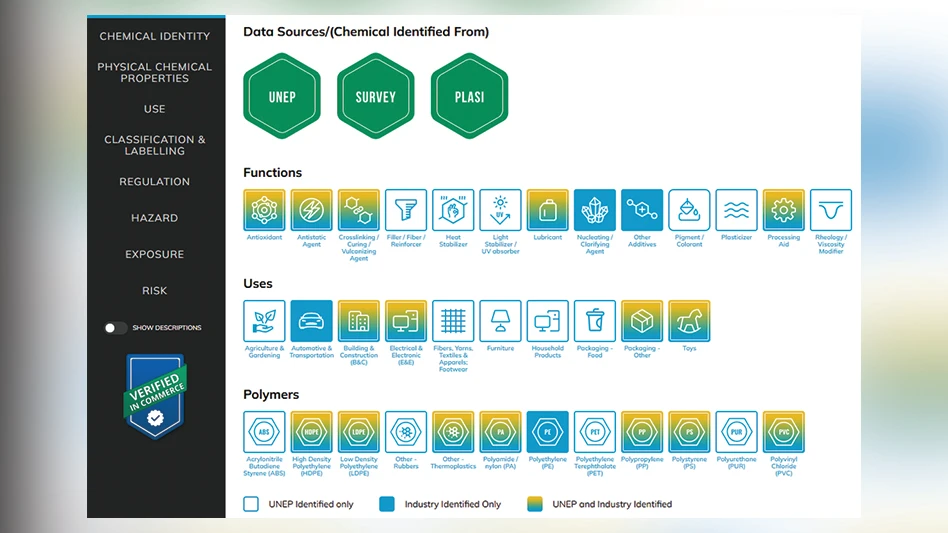
Cincinnati, Ohio-based Procter & Gamble Company (P&G) has begun testing reusable packaging on some of its most popular products as part of a new Loop initiative to change the world’s reliance on single-use packaging.
Many of P&G’s largest global brands, including Tide, Cascade and Crest, will participate in the circular e-commerce sustainable platform, the company says in a news release. Developed by Trenton, New Jersey-based TerraCycle, the platform will collect and recycle items, including toothbrush heads and razor blades, “creating circular solutions that help eliminate waste.”
Products available on the Loop platform are packaged in reusable glass or metal containers and shipped directly to consumers in a specially designed tote. Once used, products are retrieved through free at-home pickup, then cleaned, refilled and reused, creating a circular packaging system.
P&G was the first consumer products company to join Loop and will be evaluating package functionality and features, as well as loyalty and repurchase rates in the New York metro area test market. The company comments the Loop partnership further advances P&G’s Ambition 2030 sustainability goals. Eight P&G brands will be available through Loop, and the company will use the pilot test market to validate and optimize how to operate a collect-clean-refill business model.
“We’re proud to partner with TerraCycle as the first CPG company to be part of this program as we work to accelerate sustainable innovation and explore new circular solutions that consumers love,” remarks Carolyn Tastad, P&G’s Group President North America.
P&G packaging expert Brent Heist remarks, “Loop gives us the opportunity to test and learn what a refill and return business model must deliver in order to make it a truly scalable, sustainable proposition. Several of our brands redesigned beautiful new packages to test durable materials like stainless steel. Others like Oral-B are trying a new design that reduces plastic waste by up to 60 percent through a durable handle equipped with a ClicFit mechanism for replacing and recycling the brush head.”
Cincinnati, Ohio-based The Kroger Co. will also pilot the reusable packaging system, enabling customers to purchase more than 100 products from consumer brands that have been redesigned with durable containers, the grocery chain says in a news release.
"Customers are increasingly seeking out sustainable products and services that fit their lifestyle. As the exclusive grocery retail partner for Loop in the U.S., Kroger is taking another big step toward a world with zero waste,” says Jessica Adelman, Kroger's group vice president of corporate affairs.
During the first phase of the U.S. launch, a select number of consumers in New York, New Jersey, Pennsylvania, Maryland and Washington will be able to experience Loop beginning May 21.
Whole Foods Market eliminates plastic straws
Austin, Texas-based Whole Foods Market has announced it will eliminate plastic straws from its stores in the U.S., U.K. and Canada by July 2019, becoming the first national grocer to make this change. In addition, the grocer switched to smaller plastic bags in its produce department and is replacing hard plastic rotisserie chicken containers with new bags that use approximately 70 percent less plastic, the company says in a news release.
The packaging changes will reduce an estimated 800,000 pounds of plastic per year.
“We recognize that single-use plastics are a concern for many of our customers, team members and suppliers, and we’re proud of these packaging changes,” says A.C. Gallo, president and chief merchandising officer at Whole Foods Market. “We will continue to look for additional opportunities to further reduce plastic across our stores.”
By July 2019, Whole Foods Market will remove plastic straws from Whole Foods Market-operated venues, including Allegro coffee bars, juice bars and cafes, and will offer customers paper straws with frozen drinks or upon request. The paper straws are Forest Stewardship Council-certified, recyclable and compostable.
Graham Packaging makes sustainability commitments
Lancaster, Pennsylvania-based Graham Packaging has signed the U.K.-based Ellen MacArthur Foundation's New Plastics Economy Global Commitment. The agreement states that by 2025, 100 percent of Graham’s plastic packaging can be reused, recycled or composted. Graham Packaging joins hundreds of global brands that also signed the pledge.
“Since its founding nearly five decades ago, Graham Packaging has been dedicated to the design and manufacturing of environmentally friendly plastic packaging solutions,” says Tracee Reeves, head of sustainability and chief general counsel at Graham Packaging. “This new commitment will bring together all of our resources to reduce global waste and help our customers reach their sustainability goals.”
The New Plastics Economy Global Commitment focuses on three actions to achieve a circular economy for plastic, including eliminating problematic or unnecessary plastic packaging and moving from single-use to reusable packaging models, ensuring 100 percent of plastic packaging can be reused, recycled or composted by 2025 and circulating the plastic produced by increasing the amount of plastics reused or recycled and made into new packaging or products.
Graham’s Packaging Global Sustainability Committee says it will lead the charge in helping the company reach these goals. Graham Packaging currently uses more than 100 million pounds of PCR annually. The Graham Recycling Center recycles 50 million pounds or approximately 378 million plastic containers from curbside recycling programs per year.
Latest from Recycling Today
- ArcelorMittal puts French EAF conversions on hold
- Associations ask for effective EPR to drive textile circularity in Europe
- GESA report claims 72 countries recycled EPS in 2023
- Report: Saica exploring recycled paper mill project in Dayton, Ohio
- Hydro’s Alumetal to meet 15 percent of its energy demands through solar
- CSA Group publishes standard defining plastics recycling in Canada
- Second Cyclyx Circularity Center to be located near Fort Worth, Texas
- Sennebogen machinery keeps material moving at German recycling plant





